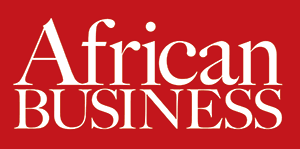Imf.org
Quote
Growth is expected to stabilize at around 4.5% in the medium term with implementation of ongoing reforms – IMF’s Blancher
End-of-Mission press releases of IMF staff teams include statements that convey preliminary findings after a visit to a country. The views expressed in this statement are those of the IMF staff and do not necessarily represent the views of the IMF’s Executive Board. Based on the preliminary findings of this mission, staff will prepare a report that, subject to management approval, will be presented to the IMF’s Executive Board for discussion and decision.
Improved fiscal management and diversification of the economy have strengthened Morocco’s resilience.
Growth projected to accelerate to about 4.4 in 2017
The IMF welcomes the recent public pension reform as well as improvements in public finances provided for in the 2017 draft budget
An International Monetary Fund (IMF) staff team led by Nicolas Blancher visited Morocco from November 16 to December 1, 2016, to conduct discussions with the Moroccan authorities on the 2016 Article IV consultation, as well as on the first review under the Precautionary and Liquidity Line (PLL) arrangement approved in July 2016. The discussions focused on increasing the resilience and the potential of the Moroccan economy.
At the conclusion of the visit, Mr. Blancher issued the following statement:
“In recent years, the Moroccan economy has benefited from the continuation of prudent macroeconomic policies and structural reforms as well as favorable developments in oil prices. Improved fiscal management and diversification of the economy have strengthened its resilience.
“Much remains to be done, however, to achieve higher, sustainable, and more inclusive growth. Unemployment, particularly among young people, remains high. Significant structural reforms have been initiated, and it is necessary to accelerate their implementation in order to increase productivity gains and job creation, and to raise growth potential. Key priorities include improving the quality of the education system, the functioning of the labor market, and female labor force participation, and to continue with efforts to further improve the business environment.
In 2016, Moroccan economic growth should slow to between 1.5 and 2 percent as a result of a bad cereal harvest and relatively low activity in the nonagricultural sector. Inflation and credit growth remain moderate. The current account deficit should increase slightly to 2.9 percent of GDP, driven in particular by higher imports of capital goods and food and the decline in phosphate prices, despite the dynamism of the new export sectors. Taking into account foreign direct investment inflows, international reserves reached the equivalent of 6.8 months of imports.
“In 2017, growth is projected to accelerate to about 4.4 percent as agriculture recovers and performance in the nonagricultural sector strengthens. Growth is also expected to stabilize at around 4.5 percent in the medium term with the implementation of ongoing reforms. However, risks associated with growth in the advanced and emerging market economies, world energy prices, geopolitical tensions in the region, and volatility in global financial markets, remain high.
“On the fiscal side, developments as of end of September are in line with the deficit target of 3.5 percent of GDP in 2016. The team welcomes the recent public pension reform as well as improvements in public finances provided for in the 2017 draft budget, with a deficit of 3 percent of GDP. Over the medium term, the reforms designed to make the tax system more efficient and equitable should be stepped up, notably by broadening the tax base and combating tax evasion.
These efforts would provide more room to support investments in infrastructure, health, education, and social protection, and to reduce public debt. Indeed, despite public debt being at a sustainable level and robust to various shocks, its reduction will create additional fiscal space. Furthermore, to contain the risks associated with fiscal decentralization, there is a need to ensure good governance, transparency, and fiscal discipline at the local level, and the team supports ongoing efforts in this area.
“We support the government’s intention to begin a gradual transition toward a more flexible exchange rate regime and inflation targeting. This regime will facilitate integration in the global economy by preserving competitiveness and reinforcing the capacity to absorb external shocks. We continue to work with the authorities toward finalizing their roadmap for this transition.
“The Moroccan financial sector is well capitalized, and the risks to financial stability remain limited. Nonperforming loans are increasing but are well provisioned. It is necessary, however, to continue to reduce credit concentration as well as to pay special attention to the risks related to Moroccan banks’ expansion in Africa. In this regard, the strengthening of bank supervision and cross-border collaboration is welcome, and the team commends the authorities for the progress made in implementing the FSAP recommendations. The team also continues to support efforts aimed at increasing access to finance, in particular for small- and medium-sized enterprises. Furthermore, the team recommends a rapid adoption of the new central bank law, which will strengthen its independence and its role in financial stability.
“The team would like to thank the Moroccan authorities and representatives of the private sector and the civil society for their cooperation and productive discussions.”
Background information
The IMF Executive Board approved a 24-month arrangement under the Precautionary Liquidity Line (PLL) in an amount equivalent to around US$3.5 billion (280 percent of Morocco’s quota) in July 2014(see Press Release No.16/355) .
MEDIA RELATIONS
PRESS OFFICER: WAFA AMR
PHONE: +1 202 623-7100EMAIL: MEDIA@IMF.ORG








